So today I have a special podcast—a near hour–long chat with David Luekens—the founder of the best email newsletter on Thailand’s coast and islands, Thai Island Times. We talk about Covid in Thailand, sustainable tourism, David’s newsletter, and, of course, his pick of the crop.
Enjoy!
Peak hour on a southern Ko Lanta beach. Photo: David Luekens.
Stuart
OK, so I’m here with David Luekens and if you’ve ever traveled in Thailand on the back of Travelfish, it’s most likely you’ve been traveling on the back of his research. He’s been living in Thailand for almost a decade, although the first time he was in the region was 2005, which is what, like about 15 years ago.
After he got into the region, he traveled using Travelfish for a while and then he ended up working with us on the site and he’s done some incredible research, not just on the islands, although that’s what we’re going to be primarily talking about, but particularly also in Thailand’s Northeast, Isaan, as some people know it, and it’s one of the more under touristed parts of the country.
Now, earlier today I sent David an email with a couple of pre–interview questions, like where was home back in the States and that kind of thing, and one of the questions was how many islands has he stepped foot on? So David came back and said to me, well, it depends, it’s somewhere between 55 and 80 Thai islands. Depending on how you classify them, you know if you’ve got like a pair of islands like Ko Rok where there’s two islands, does that count as one or two?
It’s a bit like counting countries, but most people I know, like I thought I was doing alright with, I don’t know, I think I’m in the mid 30s, I think I’ve been to as many Thai islands as I’ve been to countries, but 55 to 80 is sort of pushing the envelope.
So anyway, David and I are gonna have a bit of a chat, about, well, we’ll get to the Thai islands, but we’re also going to talk about what’s on everybody’s lips, which is Covid and what’s happening in Thailand, and how Thailand is trying to open up and how it’s managing it. Then we’re gonna switch over to a bit of a chat about responsible tourism and sustainable tourism, and this is something I’ve been writing about on Couchfish a lot, about perhaps the silver lining to this whole shit sandwich of Covid is how can we reinvent tourism, like how can tourism be done better? So we’ll talk about that.
And then we’re going to get to what, I guess everybody really wants to hear about, which is when you’ve been to up to 80 Thai islands, which is your favourite Thai island?
So before we get into this, David is in Bangkok at the moment, I’m in Bali, and David, what did you eat yesterday? What was a good meal you had to have?
David
Uh, som tam gai yang khao neow just at a new place opened up down the street from our little apartment here out in West Bangkok and we tried it out. It’s actually been packed, they have all kinds of Isaan food, like hot pot and it is really good, so we’re happy to have that.
There is more to the Thai islands than beaches. Panang seafood, Ko Jum. Photo: David Luekens.
Stuart
So what what made it so good?
David
Well the som tam was well balanced, you know it was spicy, it was sour, we got the Lao—style som tam with the fermented fish sauce and, I like it when it’s a little bit extra sour, nice taste of fresh lime juice, and I mean the gai yang was great, and the atmosphere was good it was kind of lively, so a classic Northeastern Thai restaurant in Bangkok.
Stuart
And this is in Thonburi, correct?
David
Yeah, pretty far out near in Bangla area of Bangkok, which is pretty close to like the far west end of the of the BTS Skytrain system, we actually live down the street from Bangla BTS Station, so it’s kinda out in the suburbs I guess you’d say.
Stuart
So when you say like the place is quite new and it’s busy like it sounds like it was teeming with people, in this age of Covid, how is it in Bangkok at the moment?
David
People really just are going about their business. You know, in the back in the first few months of the pandemic there was a lot of fear, and I mean back in like April of 2020 last year, half the city kind of shut down, malls were closed except for restaurants except for takeout and all the bars closed, and even interprovincial transport was really limited.
But you know gradually, I mean, we were lucky here to have like a solid six months of, basically no, or very very few known Covid infections, in the whole country. And that ended in December, when there was a big outbreak in Samut Sakhon, southwest of Bangkok. Since then it’s been kind of touch and go, but I think people are more used to the threat of it, people aren’t quite, I shouldn’t say everyone but it seems like a lot of people, especially younger people, are out in Bangkok. Everyone wears a mask and pretty much well I mean, almost everyone, at least you have to wear a mask like going on the Skytrain and stuff like that.
At that Isaan restaurant, it’s like you wouldn’t even know there was a pandemic really going on. People were crowding in there, which is, now we have another outbreak, and it’s been kind of like the numbers will go down to just maybe five or ten cases reported in a single day in Bangkok and then, now they’re back up again. I think 100 or something yesterday, and today in Bangkok and also in some of the provinces surrounding here so, it’s just the way it is, we’re still lucky compared to a lot of countries.
Stuart
So with your day to day life, if you look back to say like April last year and, we’re a year later so it’s early April this year we’re in just before Songkran, what’s a big difference between now and a year ago for you, like in day-to-day life?
David
I was actually thinking today how I was thinking back on a year ago at this time, Thailand had jumped to around 200 cases in a day and everyone was kind of freaking out, and they closed a lot of shops and restaurants and everything like Phuket was completely closed down, you couldn’t go on the beach same in places like Pattaya and some other places like Cha–Am, you weren’t allowed to go on the beach even.
Ao Si, Ko Jum. Photo: David Luekens.
There was an alcohol ban, there was 20 days, I think April 10th to May 1st, you weren’t allowed to buy any alcohol anywhere, even at like a convenience store or 7–eleven. There was a nationwide curfew where you had to be inside by 8:00 o’clock at night, so it’s far less drastic now in terms of the prevention measures.
I mean, if you really look at it, I was thinking how the situation then compared to now is really not that different, it’s about the same number of cases, being imported and very few people are vaccinated in Thailand, so yeah, so it’s kind of been a slow and tedious year, and I think that that’s going to continue.
Stuart
So do you know anybody personally, or know of anybody personally, in Thailand, who has come down with Covid?
David
I don’t no, not in Thailand. I know several back in the US but not in Thailand.
Stuart
Through this year, like a lot of travel has been shut down and it was very difficult to travel for a period, and obviously Thailand is largely closed for international tourism coming in, but I know you have done a little bit of travel, even if not by public transport, in the country, across this period, how is it different?
David
It depends on where you go. We took a trip up to Isaan in the Northeast, the northeastern region back in August, and it was like going back to normal again. Isaan has had very few cases relative to the rest of the country, which I mean the country has had, you know, a few cases relative to most other countries.
In Isaan, we did a long trip along the Mekong River, it’s beautiful, and I mean Isaan is a region that doesn’t get many foreign travellers, even when there’s not a pandemic going on. So it really felt like normal up there. We were in provinces that still haven’t reported a single case of Covid. Life was kind of going on more as normal there and that was kind of refreshing to get a taste of that, except that of course you’re seeing Laos across the border and knowing that you can’t use any of the border crossings to pop over there. That was the one big difference.
But then, for touristy areas like Ko Samui and Ko Chang is little bit better off compared to, Ko Samui, Phuket, places like that, are devastated. In some places like 90% of businesses are closed. I mean, even 24 hour convenience stores and that kind of thing, are closed.
I was thinking about all the work I’ve done for Travelfish over the years, in the islands and places that are quite touristy and how all that research is going to have to get thrown out after the pandemic. So many places are closed and are never going to come back. Even places, the hotels and other businesses that have stuck it out and are still going, they’re going to have to be looked at again with fresh eyes after the pandemic.
Just the upkeep of a resort and that kind of thing costs money that a lot of people I think don’t have. I think places are getting rundown. Thailand has a very moist, wet rainy season that causes damage to buildings and that kind of thing. Places like Chaweng and Ko Samui—how long is it gonna take? These are so developed and you can’t just get rid of these old these buildings and kind of start from scratch, so there’s going to be kind of a ghost town feel to a lot of these places, I think for several years to come.
Stuart
I totally agree with you about the research angle of things, it’s a complete nightmare, but just coming back to something you said, talking about how long businesses will be able to last, how has it worked in Thailand for government support? Not just businesses in the tourism industry, but in general like is there much sort of money crossing the table?
David
No, not not much, the government put most of their eggs into this tourism stimulus plan. They’re trying to, especially during those six months when there was basically no Covid in the country they were trying to get domestic tourists to travel. They were giving people, I don’t know, like big discounts on flights and you get like 1,000 baht back and that kind of thing.
A Ko Chang hideaway. Photo: David Luekens.
So that did help some businesses, but I think what the government didn’t really take into account and really appreciate was just how Thailand really has two separate tourism industries.
There’s the whole industry and some whole provinces are really geared towards Thai travellers and others domestic travellers and there’s a whole foreign tourism, a place like Phuket is very heavily tilted towards foreign tourism, so the places that are more geared towards foreign tourism were kind of left out, and I mean there’s a lot of overlap of course, between the domestic and foreign tourism.
My partner Chin runs a food tour company here in Bangkok that’s basically all foreign tourists, and she didn’t get any customers from this domestic tourism stimulus.
Stuart
When you were talking about traveling through Isaan, you said that region doesn’t see a tremendous lot of foreign tourists, I remember talking to Joe Cummings a while ago from ex Lonely Planet and he was saying it didn’t matter how much he pushed it, foreigners, most foreign tourists, just didn’t go there. So when you were traveling around there were you seeing a lot of businesses closed and that kind of thing? Or would you say it was business as usual, but a little bit off?
David
Yeah, business as usual, but a little bit off. I mean, we say that we went to Phimai for one night, where there’s some ancient Khmer ruins, there’s a place there called Moon River Resort, which is a nice little bungalow place like 600 baht 800 baht bungalows, right overlooking the Moon River, and that’s a place, and there are other some other guesthouses in Phimai, that you know, it’s probably about half of their business, at least came from foreign travellers who are passing through to see the ruins.
Also in Nong Khai there’s some guest houses that were mainly geared towards foreign travellers, they’re peppered around Isaan. There are guesthouses and other businesses that did cater more to the few foreign tourists who went through there who were travelling through on their way to Laos, or just checking out the region, and so I don’t mean that it’s completely normal there and that it was completely unaffected. Also a lot of people in Isaan go to work in places like Phuket and more touristy places so, there’s been a real kind of natural restructuring of the economy where people are doing whatever they can.
So many islands, so little time. Photo: Stuart McDonald.
Here in Bangkok we know a lot of tour guides, people who have become fortune tellers, or are selling food in front of their their houses or doing street food. One guy opened a coffee shop. Some of these people will come back to the tourism industry I think later on, but some of them might not. Some people went back to their home provinces in Isaan and other parts of the country, doing what they can, and some of them might be successful in what they’re doing now, but overall, the economy is very strained.
Stuart
You have been down to the to the east, right? Down to Ko Chang way? How did that feel compared to Isaan?
David
Definitely more kind of hollowed out, I mean, but I don’t know, like in Trat town some of the guesthouses are closed, but most of those places are places that the owners own the buildings and have been there for years. I’m in touch with quite a few business owners in the islands, who own their properties, and a lot of them had some money saved up from before the pandemic.
The good thing is that before the pandemic for a lot of people, they really had a really successful few years before the pandemic, so they were able to put some money away. The people are sort of in like this holding pattern, doing whatever they can to get through. People in the islands, catching fish, collecting fruit and stuff and just living off the land almost, and just waiting for tourists to come back.
I think that’s the big difference, if you’re a business owner, if you had a mortgage on a property or if you had a lot of debt that you went into in order to start your business and you were still paying that off, those are the people who are really in trouble now.
Stuart
So you mentioned people are treading water, waiting till tourists come back, so Thailand’s been well, at least by Southeast Asian standards, quite proactive in trying to come up with a number of different schemes and plans and campaigns to to get tourists back, and none of them have have sort of really hit pay–dirt so far, but the latest one is this opening up Phuket to vaccinated travellers. What’s your thoughts on that? How do you see that playing out?
David
I don’t have a whole lot of confidence in it, there’s so many questions. I wrote an article about it recently and for the Phuket plan, the plan is to vaccinate 70% of the local population and then start letting tourists in without any quarantine.
There’s still a lot of details that has not been released about this. Like initially it looked like tourists were going to be allowed to just kind of go anywhere they wanted on the island, but now some people from the TAT said that there would be travel lanes within the province, so I don’t know what that means. If that means you have to stay on a certain beach, or maybe you have to stay in like Patong or Kata area. Those are the more touristy beaches on the west coast.
But then a lot of people have to go on and off the island every day or every week, to travel to Phang Nga or Krabi or even up to Bangkok. All those people who are domestic travellers who come to the island, do they have to be vaccinated? There’s just so many questions.
They need around 950,000 doses of the vaccine, there’s just so many questions still about Thailand whole vaccination program and strategy. I think people should just expect to just try to really be patient and expect it to be a really tedious and drawn out process for Thailand to reopen, and I don’t think people should really count on, at this point, the Phuket sandbox plan.
I think you just kind of have to wait and see until we’ll have more of a clear idea of how things are going come June July this year, but until then, I think there’s just so much uncertainty still.
Stuart
All right, let’s put Covid aside for a minute, well for good, hopefully and talk a little bit about, reinventing tourism and responsible tourism and sustainable tourism. If you cast your mind back to 2019 every second tourism story about Southeast Asia had over–tourism in the headline. Whether it was Ko Phi Phi or Angkor Wat, or Hoi An or Halong Bay or Bali or wherever it was just like the plague and it was fairly obvious to a lot of people, that something needed to change, but I don’t think anyone really wanted a change to what we got.
Tread lightly. Baan Ko Jum. Photo: David Luekens.
The silver lining to this, I guess, is the opportunity for the industry to, not just the industry, but also travellers and destinations, particularly destinations, to rethink what they should be doing with tourism, to rethink how many people they actually want coming into destinations and that kind of thing. So I was wondering what your thoughts are on that.
David
I mean in Thailand, in 2019 39.8 million foreign tourists came into the country, according to the official count, which is an awful lot. I do think we’re not going to get anywhere close to that number for years just naturally because of the fallout from the pandemic, and the economy and everything, the impact it is having.
There are people in Thailand, including people in the government, like in the Ministry of the Environment and Natural Resources for example, and in the Department of National Parks for another example, who have since well before the pandemic, were already talking about ways to try to sustain and preserve more ecologically fragile islands, and also forests and certain national parks.
There was a lot of talk last year about closing all national parks in Thailand for I think three or four months, which was what happened because of the pandemic and then they said well the nature is rejuvenating and we should do this every year and I think there’s a good chance that sort of thing will happen.
When you look at Maya Bay on Ko Phi Phi Leh and also Ko Yung which is a small island in the Phi Phi group and Ko Tachai, Ko Bon, these islands were, those islands in Maya Bay were completely closed to tourists years ago and and they’re having quite a bit of success in terms of the coral rehabilitation and just bringing the environments back up to what they really should be.
There’s a plan to reopen Maya Bay, but it’s going to be way different than before. Supposedly no boats will be allowed in the actual bay itself, and there will be like limited numbers of people allowed in, and they have to use a walkway to go in from the backside of the island and that has started being seen as a test, or a pilot project for what could happen in some of the other marine destinations.
I think it’s important to say that Thailand and the people here, there is a growing awareness about protecting the environment I was writing recently about Ko Libong and how the local community there has formed a group that’s doing seagrass surveys and trying to take care of the local dugong population, which was kind of neglected for a while. So there are steps in the right direction and it’s important to acknowledge that.
Always try to use local talent. Photo: Stuart McDonald.
With that said, I also think that a lot of what’s being written about rethinking tourism and ending the full moon party on Ko Pha Ngan for example, a lot of that is just overblown. For one thing, the tourism industry is just so hungry to get tourists back in that they’re just going to be so happy to get money flowing back in, and that’s going to be the priority. That’s always been the priority, you know, in Thailand, the TAT has always been focused on driving up numbers without really paying much attention to sustainability.
My feeling is that things aren’t going to be that much different than they were before the pandemic, in terms of how destinations are controlled and regulated, I mean is Ko Lipe, Ko Phi Phi Don or Ko Tao or these islands that you know were heavily developed are they going to start limiting arrival numbers? I highly doubt it, but at least I would say that marine park destinations I think there’s definitely a lot of hope that those will be better managed in the future.
Stuart
I guess, and this again carries over to Bali, where I am, is that there’s a concern among people that if Covid was to go away tomorrow for for whatever random reason, the tourism tap would just be turned straight back on and we’d be back to 2019. That’s like wasting the opportunity of the last well, what’s probably going to be at least two, three, four years where the region is shut down. So it’s just sort of trying to think of things, ways to do things better.
I read a story a little while ago about a small community based tourism scheme in Khao Lak and they had been born out of the wreckage of the tsunami and it’s like what you would see outside Phattalung or Nakhon Si Thammarat or something like that it’s a very low key village based, community based scheme. It sounded great. I’ve never been there, but it read pretty well and well, that’s great, but that doesn’t scale up to when you’re getting 39 million tourists a year.
David
Thailand has been doing a lot of community based tourism for years, but it just doesn’t really get that much interest from the vast majority of tourists who come here.
Stuart
Yeah, I think it’s an interesting problem of how tourism boards, whether it’s Indonesia or Malaysia or Thailand, Vietnam, whatever of start to reconsider what they’re really chasing, there’s all the talk of oh, we’re going to get, what do they call it? High quality, which is where they really mean high spending tourists, but there’s a different kind of high quality tourist and they don’t have to be spending a lot of money.
David
Yeah, that really drives me nuts, when I see that quality tourists equated to staying in some luxury resort that’s owned by probably some fat–cat in New York or something.
Stuart
Well, yeah, you know you’re preaching to the converted on that count.
Stuart
Let’s move on a little bit too, because we’ve gone already way over time. Let’s move onto Thai Island Times. So it’s your newsletter which you’ve been running for how long now?
David
Almost a year. May 1st will be a year.
Stuart
It’s what it says on the can, right? It’s Thailand’s islands and beaches?
David
Yeah, it’s a bit more than that, honestly. I mean, it’s really all of coastal Thailand. All 23 provinces along the coast, it’s not just about islands, it’s also about the mainland and everything that’s going on environmentally and socially, it’s not just about pretty beaches and that kind of thing.
Stuart
I don’t remember if you remember this conversation but years ago, you had actually been working with us for quite a period, but we’d never actually met in person. I can’t remember if it was when you came down to Bali or we met in Bangkok or something I don’t remember. We were talking about the work you had done and everything, and you said something along the lines of until I started because the first gig you did for us was on the southwest islands from memory, and you said, well, I wasn’t actually a beach person. I was more into the forest and the hills and whatever.
I don’t know if you even remember saying that. It made me laugh at the time because I think we sent you the beach after beach after island after island for way too long but so I wonder, or my question is like why did you choose coastal Thailand and the islands, rather than say Isaan or the mountains of the north or something else completely.
David
I think it was just an idea that I had, because there are so many websites and different publications covering all of Thailand or Southeast Asia or Asia or just the whole world of travel, but there was nothing that focused specifically on ... I mean, yeah, you know there’s news agencies and blogs about Phuket or Ko Samui or Ko Chang and a lot of those are really, really great, but there was nothing that focused on all of coastal Thailand, all of the islands, as a distinct sort of region, and so I wanted to just kind of dig deeper into that whole thing.
Sunset on Ko Kut. Photo: Stuart McDonald.
All the coasts and just kind of go further into it than I think really had been done before. I also love the islands. I mean, I do love all the other parts of Thailand and other parts of the region too. But I mean when I went on that first work trip for you back in 2011 and went to Ko Muk was the first island I went to—and I mean I just fell in love with it.
I mean, you know if you put me on a bus to any island right now I would just jump on it. I’m not really a beach person, I don’t really like lying on beaches all day and that kind of thing, but I don’t know, the more I went because when I worked for Travelfish I went back to a lot of these islands again and again. Oftentimes to do updates but also just with friends and family or whatever, just for fun or just by myself and you learn something new every time and I think a lot of people just kind of think, Oh well, you know the Thai islands, I just pick one and I go and they’re all the same pretty much.
The more time you spend down there you learn that every one of these places really has a distinct identity. Whether it’s historically or geographically, or culturally all these different places, there’s so much going on and so I really wanted to kind of cover it from a really broad context. So that’s what the newsletter is about. I mean, it’s hard to do that by myself, I’m also doing some freelance work and stuff, and but that’s kind of the the goal, or the the idea behind it.
Stuart
One of the things that I’ve really enjoyed, I’m reasonably well traveled on the Thai island scene, I don’t want to sound like a country counter, but I’m gonna say I think I’ve been to probably 35 or 40 maybe Thai islands at some stage, but one of the things I love about the newsletter is that often you’re mentioning an island and I’m like I have no idea where you’re talking about and you absolutely got me with your freakin Pineapple Island one for April Fools day. Of course, I’m reading it, and then I went, I’ve never heard of this place, before I finish reading the piece, I went to Google Maps and I couldn’t find it. I’m like where the fuck has David found this place?
David
Stuart
Yeah, smartass! Anyway I have really enjoyed like islands that I’ve even never heard of or not often heard of and I wonder because you’ve got your mainstream islands, so like Ko Tao, Ko Samui, Ko Pha Ngan, Ko Lanta, Phi Phi, like that kind of stuff and I wonder for a first time visitor who reads an island that’s on your newsletter, that sounds like super cool and super local, how difficult, how challenging is it gonna be when they’re going to some of these islands and they don’t speak a lick of Thai and they’re just trying to figure it out by themselves, so are they still going to be welcome?
David
Yeah, I wouldn’t say they would be unwelcome, but it could be challenging in terms of if you don’t have any Thai language, I mean Thai language skills is the most important thing that you would need to go to a lot of islands, well some of these more obscure islands. But I don’t know, I say that as someone who speaks enough Thai to have done it. Usually there is someone around who can speak a little English, especially in these kind of more off the beaten track places the people oftentimes will just be so helpful and genuine, and a lot of them are happy to help people.
I wouldn’t say it’s completely off limits to someone who doesn’t speak Thai, but it would be more challenging and some of these islands you might be better off hiring a local tour guide or something like that if you wanted to visit them for a day or a night or something.
Stuart
It’s interesting because when you use words like genuine and hospitality and that they’re welcoming and then you look at, say, a very popular island like Ko Tao, when we researched that together, I mean it feels like 1,000 years ago now, but I think it was three years ago, from memory. That’s ended up developing, I don’t think deservedly personally, a bit of an unsavoury reputation, but it is a very mercantile island now, you have to work hard I think, or at least for the bit of the island I did. You had to work hard to find some of the meet and greet that you would get on a more remote island that isn’t just like tapped out and exhausted with tourists. What’s your thoughts on somewhere like Ko Tao?
David
I think it’s important to say that there are good people on Ko Tao and Phi Phi Don and all these places. It’s not like rotten at the core, I’ve heard people say, you know, Murder Island or whatever it’s like, rotten through and through and that kind of thing, like I don’t agree with that at all.
Take a swing on Ko Wai. Photo: David Luekens.
I’m actually going to be writing a piece, or I had an idea for for an article about when people stop saying hi to strangers. I went to this island in Trat recently, Ko Chik, and they said they see maybe one foreigner a year or something, and as soon as we got off the boat, there were like ten villagers like oh, what can we do to help you? Welcome! You walked around and people smiled at you and everyone says hello or even on like an island like Ko Muk, everyone still pretty much says hello, whether you’re a traveler or a local walking by, you smile, nod, say hello.
I think when islands kind of get to the point where people stop saying hello, that’s when things start to change and people stop being friendly and has more of a vibe, like a big city or something, and it’s all just really anonymous people and tourists like hundreds or even thousands of tourists like coming in.
I mean Ko Tao specifically, I don’t really want to get into the crimes and things and murders and things that have happened there, I mean, I don’t think the two Burmese guys that were convicted of the murder a few years back, got a fair shake, personally, but Ko Tao has a lot of problems just from over–tourism, and I think that when you have so many tourists coming through there’s a lot of opportunism that pops up where you know people charge money to go to what should be a public beach or that kind of thing.
But then Ko Tao was also beautiful, like I went there with my brother just for a holiday several years ago and we had a great time, hanging out we met some great really friendly bartenders and we hiked over to the really quiet side of the island and went cliff jumping and diving and we had a great time. It’s going to be interesting to see how these islands turn out after the next several years, as tourists start coming back.
I mean Ko Tao, Ko Lipe, Ko Phi Phi Don, these pretty small islands that were really heavily developed. Islands like that are not really my first choice in terms of where I would go for a holiday just for fun, but I don’t dislike them or would not say don’t go to them or anything like that.
Stuart
Just one more thought on islands is, I know people who were friends who were born on Ko Tao, were born on Ko Pha Ngan, it’s not something you can fake. You were either born on the island or you weren’t. I think it’s this really, I mean I see it here in Indonesia as well, and it’s this mindset of it’s us and them kind of thing and it doesn’t mean that they’re not welcoming that they can’t be friendly and everything, but at the end of the day it’s like, well, yeah, I’m Thai, but really I’m from Ko Tao, from Ko Pha Ngan or whatever.
I find that attitude gets in the way, as an island becomes more popular and I can imagine if I was born on an island and saw it change how these islands have changed in my lifetime, I don’t know that I’d be very happy about it.
David
Yeah, and people take out that frustration on the tourists, I mean you see that all over the world, not only in Thailand, in Venice or places like that, I mean when you get hundreds, thousands of tourists coming every day it’s overwhelming, and it creates different dynamics too, like within an island community where someone, some land owner who before the tourism boom might have just been your average Joe, becomes like really big powerful, and so I mean it changes everything.
Stuart
Which ties back again into sustainable tourism and better management of the volume of people, going into these places and particularly islands, which are often more more fragile environments.
Stuart
So I’m going to wrap this up, but I’ve got some some questions for you, because you’re quite well traveled on beaches and islands in Thailand, so your top five.
David
Uh, I don’t know.
Stuart
Oh come on, man.
David
Uh, well, I’ll give you a few like in different categories. I’d say my favourite of the large islands that are ...
Stuart
Wait no, sorry can I interrupt you, if you had to pick an island to go to tomorrow, you, nobody else, you, where would you go?
David
I always go back to Ko Muk. I mean, I love the people that ...
Stuart
Damn, I thought you’d say Ko Jum! Ok, right, continue ...
David
Ko Jum is a great one too, I mean I love those types of kind of alternative islands, especially on the Andaman side. Like Ko Jum, Ko Muk, Ko Libong, Ko Bulon, those are all some of my favourites. I think that’s where I kind of fell in love with the Thai islands to begin with. The rubber trees and all the tropical flowers and the villages and it’s not too heavily touristed, places like that, I love places like that.
I also like some of the large islands. I think Ko Chang in Trat is probably my favourite of the large islands, I also like Ko Pha Ngan and Ko Lanta, but Ko Chang is one of the islands that I’ve been to the most and I really enjoy just exploring and I love how there’s so much jungle and mountains in the middle of the island. So much of it hasn’t been settled, like Ko Samui there’s not big villas taking over the hillsides like you see in Samui, Phuket, places like that.
Quiet time on Ko Surin. Photo: David Luekens.
So I really like Ko Chang, especially the southwest, that’s usually where I stay, down around Bang Bao. The east coast of Ko Chang is like, people think of Ko Chang is a pretty popular island, but like Salakphet and the whole east, the southeast area is, might as well be like another alternative island.
For marine park islands, which is really a whole other category, I mean there’s so many great ones, Ko Surin is one that I look back on, I’ve only been there one time and it’s just like I’m dying to get back there. It’s just so beautiful. Below the water and above the water. Ko Lao Liang, which you wrote about, and Ko Petra. I remember going to Ko Petra, there’s just nothing there except some of the shacks that are used by the people who climb up into the cliffs looking for the swallow nests. There’s no resort, no National Park station. I remember I went there by a private longtail boat and we arrived on the beach and there was nobody and there’s these big cliffs. Just amazing.
Another is Ko Rang over in the Ko Chang archipelago, that’s kind of underrated, I think.
Stuart
That’s the one with the deer isn’t it?
David
No, that is Ko Kradat.
Stuart
That’s Ko Kradat, sorry.
David
But yeah, same general area. Yeah, Ko Kradat is one of the quirky ones.
Stuart
So if you had family who had not been out to Thailand and they were coming out, where would you take them?
David
I’ve taken my Mom down to call Ko Muk and Ko Libong, I mean, I guess it would depend on what they were looking for. A friend of mine, one of my close friends from the States came out a few years ago went to Ko Lipe and Ko Bulon, which I think, those two together can be fun because they give you a perspective of, Ko Lipe is beautiful, but heavily developed, Ko Bulon is very offbeat and old style, cheap bungalows and that kind of thing.
I really, the Andaman, Trang and Satun that’s where I went for Travelfish to begin with and that’s still really my favourite area to island hop in the country, but there are some islands that I still haven’t been to, so...
Stuart
So you mentioned that there’s eighty islands all up, is that correct?
David
Well, that’s like the high, that’s if you include little islets like for example, if you include Ko Nang Yuan as a island from Ko Tao, when you include like Ko Surin Tai and Ko Surin Nua as two separate islands.
Stuart
So if you had to pick one Thai island that you haven’t been to, what would be at the top of your list?
David
Oh man, that’s tough.
Stuart
Phuket, right?
David
I’ve been to Phuket. I’ve only only spent like you know, total of like a week there I never did any work there, I’ve never written about it. The big the big ones that I haven’t been to are Ko Yao, I’ve still never been. Those are the only ones left that are pretty like well known islands, but like some in Chonburi I haven’t been much around Chonburi like Ko Khram Yai, Ko Samae San, you can’t stay overnight either of them, but I’d really love to just check them out for a day. Ko Mun, the three islands in Rayong. Never been to those.
Back in the day, Ko Mun Nork was ok. Photo: Stuart McDonald.
Yeah, those are all at the top of the list. There’s some other really obscure ones too that I want to check out, so there are quite a few inhabited Thai islands that no one talks about at least in English, you know. Ko Khao Yai is another, another one down in Satun that I really want to get to. Yeah there, there’s still quite a few, I’ve still got quite a few to go to.
Stuart
So you still got a bit of fodder on the way then?
David
Yeah, but it’s not a problem, it’s not about counting islands, I mean I’m trying to get to as many as I can, maybe all of them eventually, but it’s more about learning about the areas and everything that goes with them.
Stuart
I’m gonna wrap it up now, so your newsletter is Thai Island Times, which is thaiislandtimes.substack.com. And it comes out like it’s roughly twice a week, right?
David
It’s twice a week and then every other week, it’s once and then twice and then once and then twice. For now.
Stuart
OK, and listeners and readers should ignore the piece on Ko Tako because it’s a freakin April Fools joke. It’s easily the email newsletter I read about Thai islands, and I think you’ve done a fantastic job on it. And it’s been great talking to you. I know we’ve talked and met loads of times and tossed around all this stuff in the past, but thanks very much for your time David, it’s been a real pleasure and super interesting talking to you about all of this stuff.
David
Yep, thank you. Yeah, it’ll be good to see you up here again, hopefully not too long too.
Stuart
Probably about I don’t know 2028...

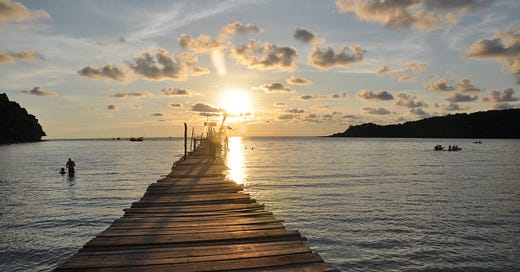


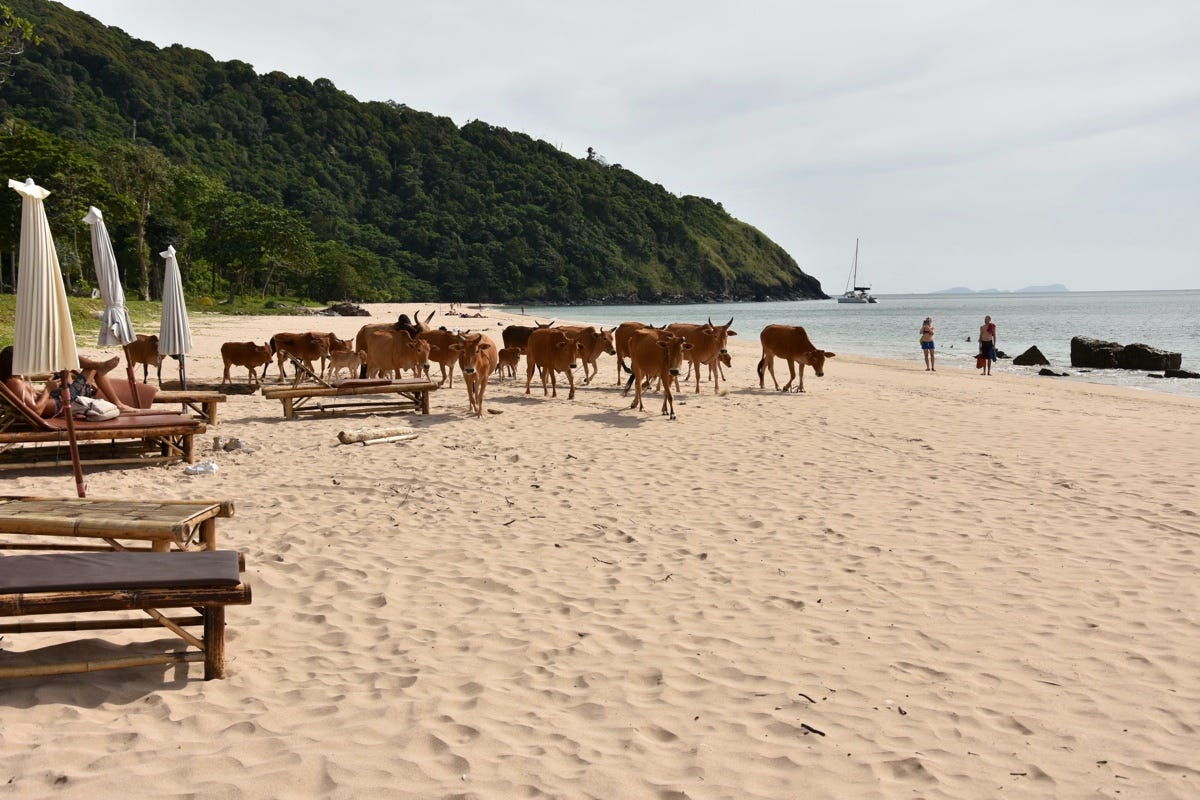
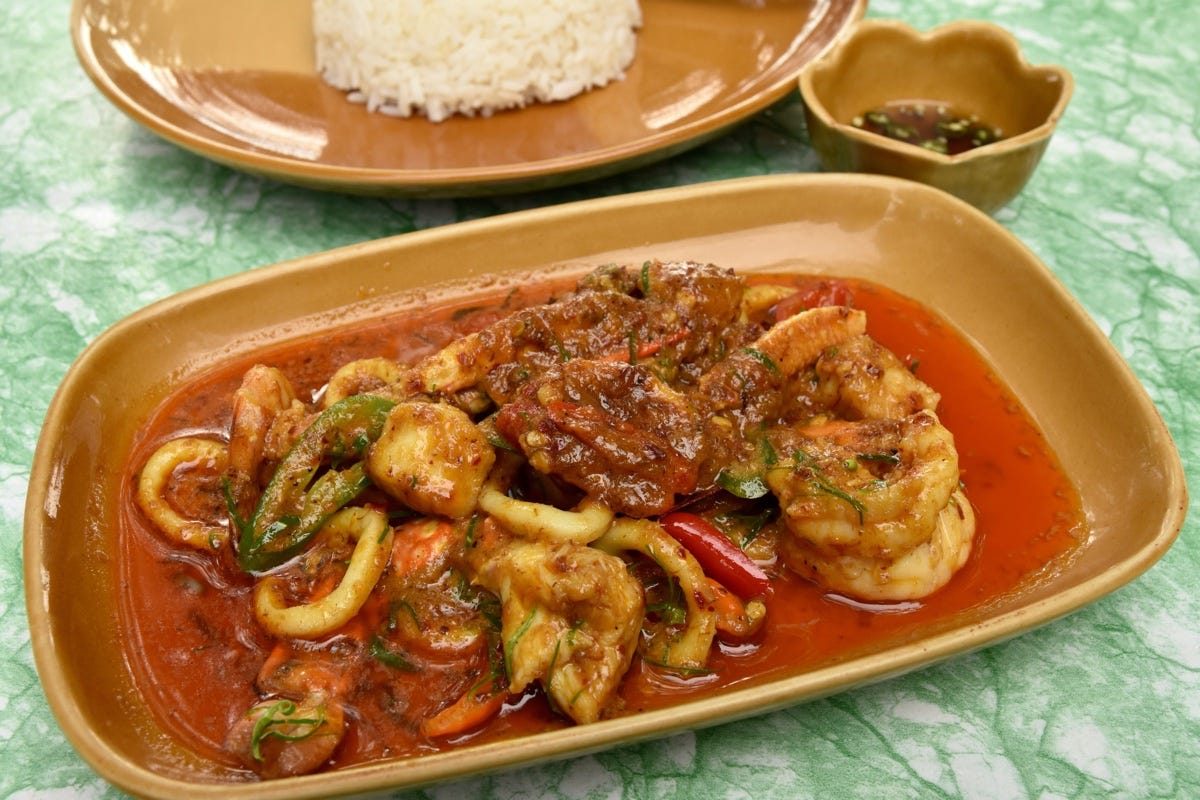
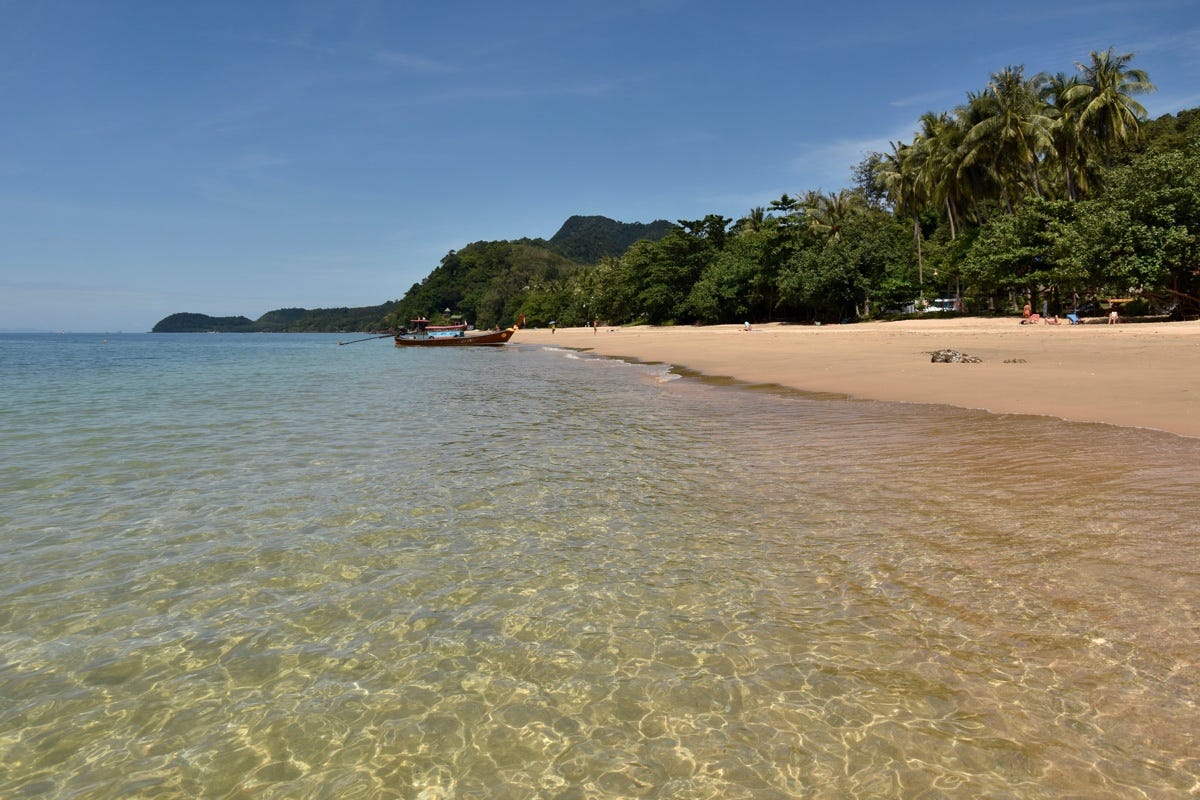
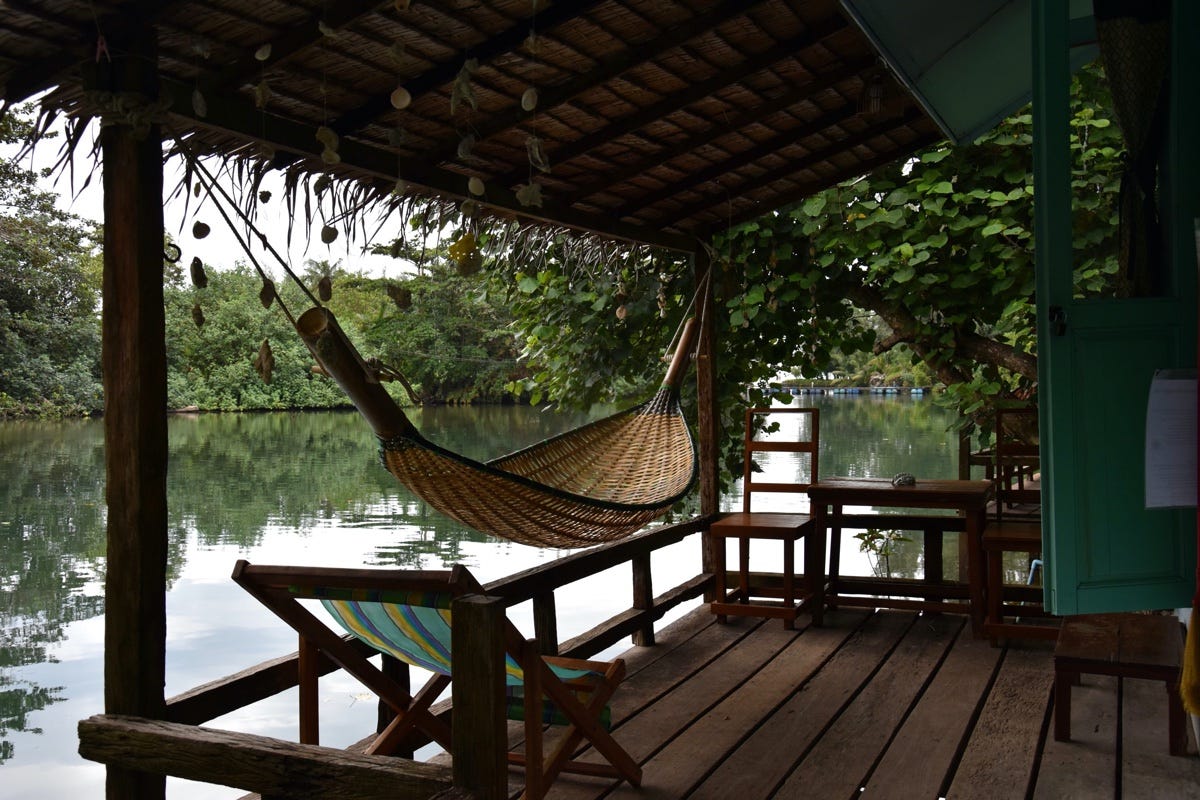

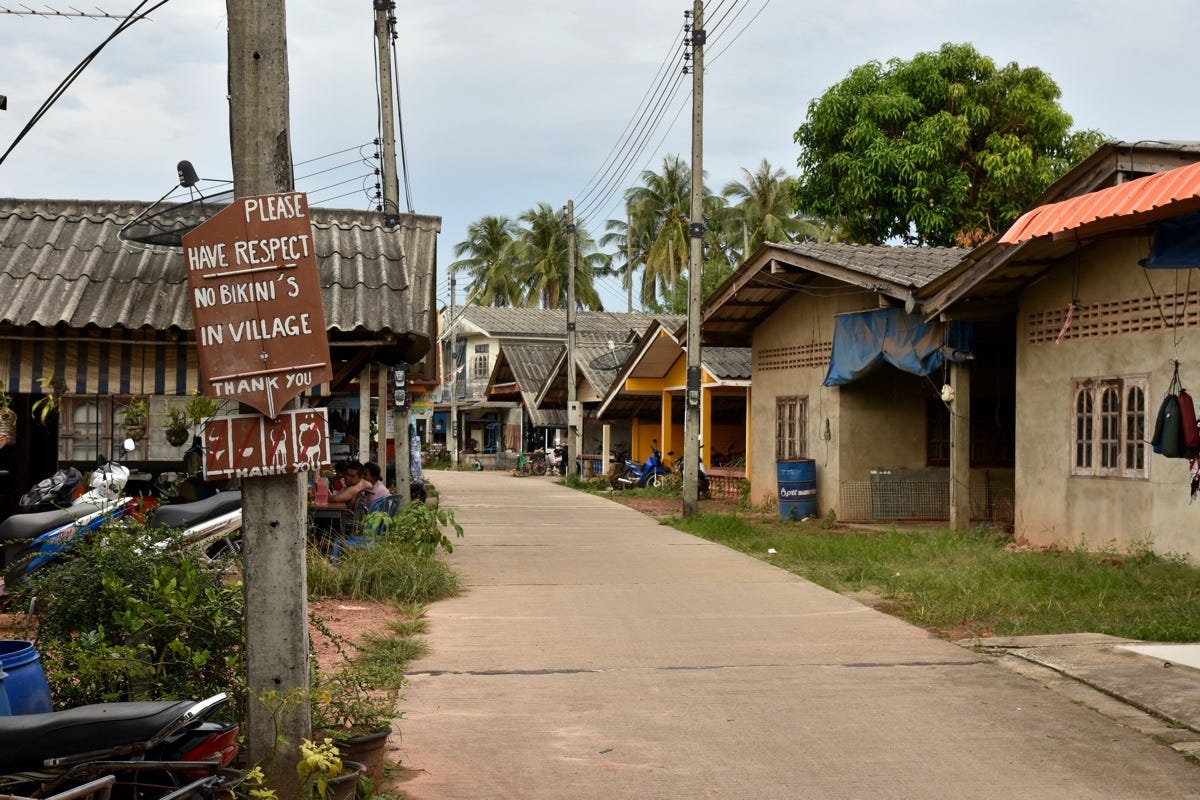
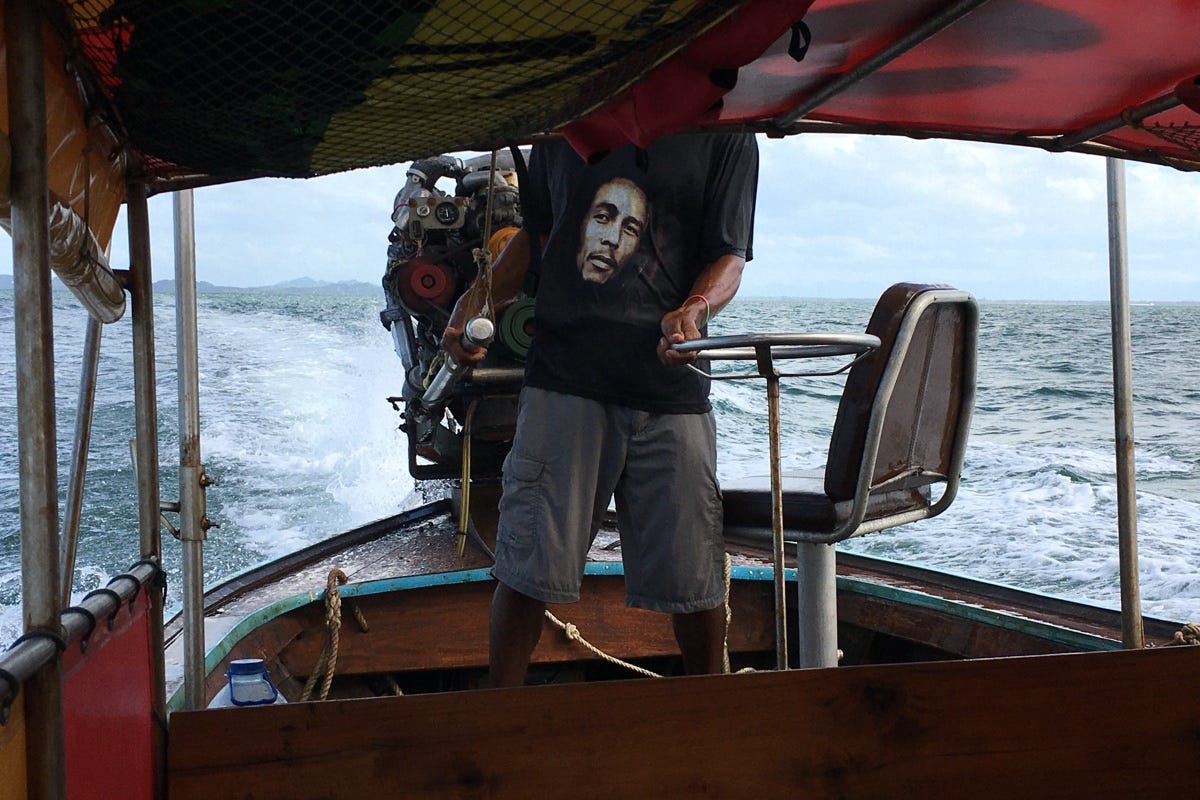

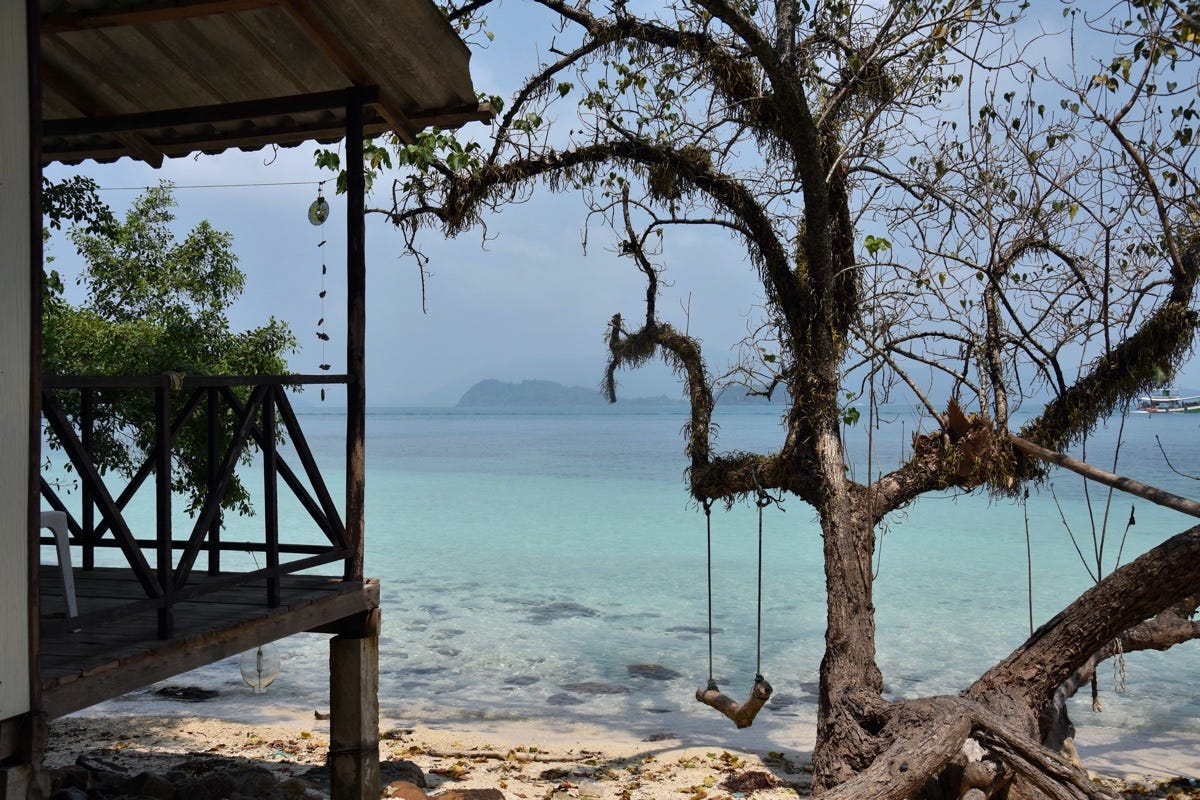
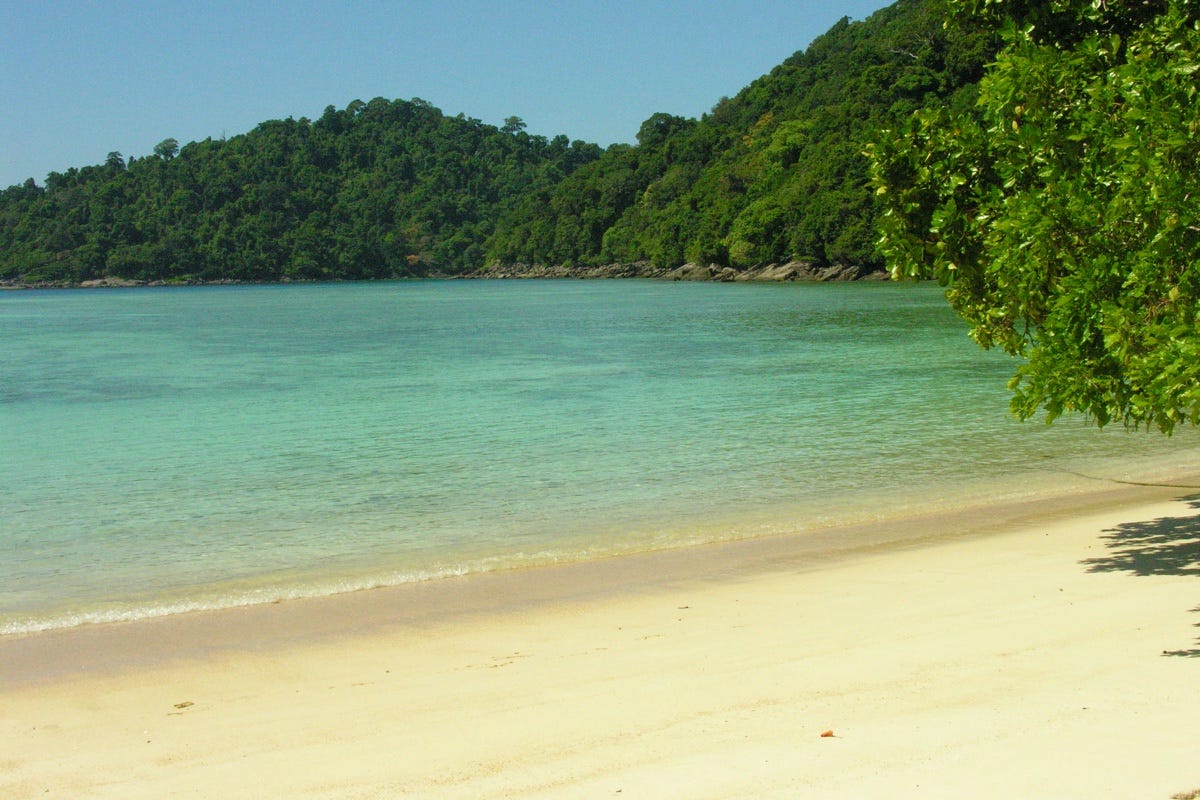
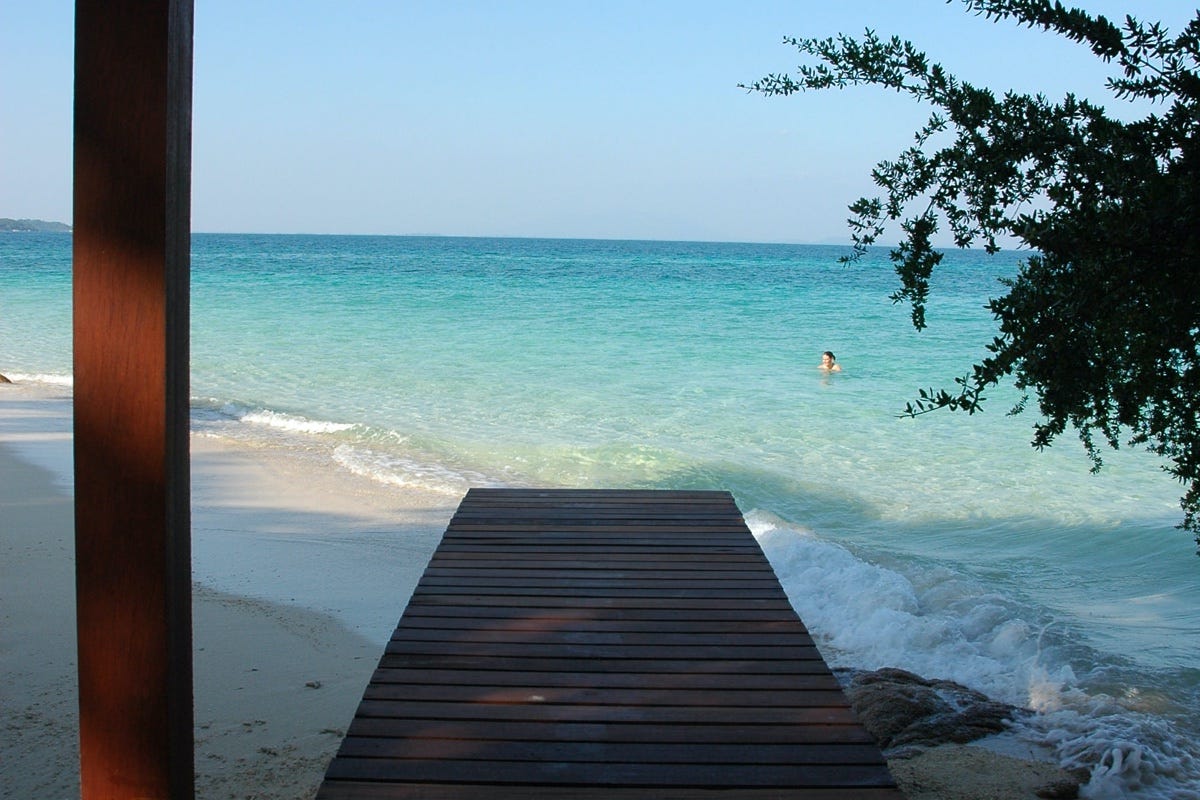

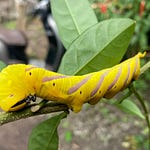
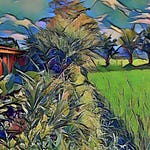

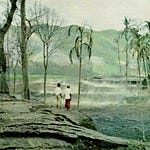
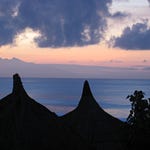
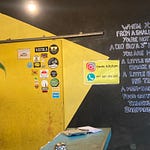
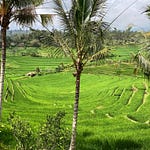

Share this post